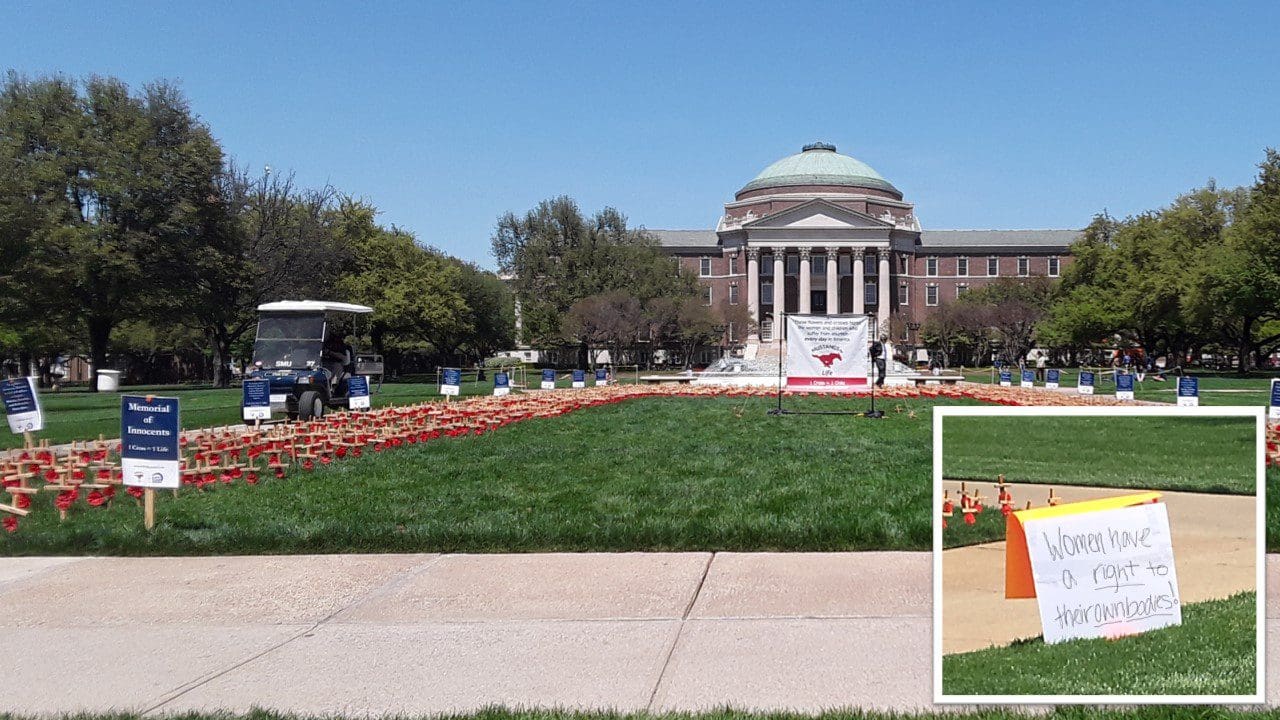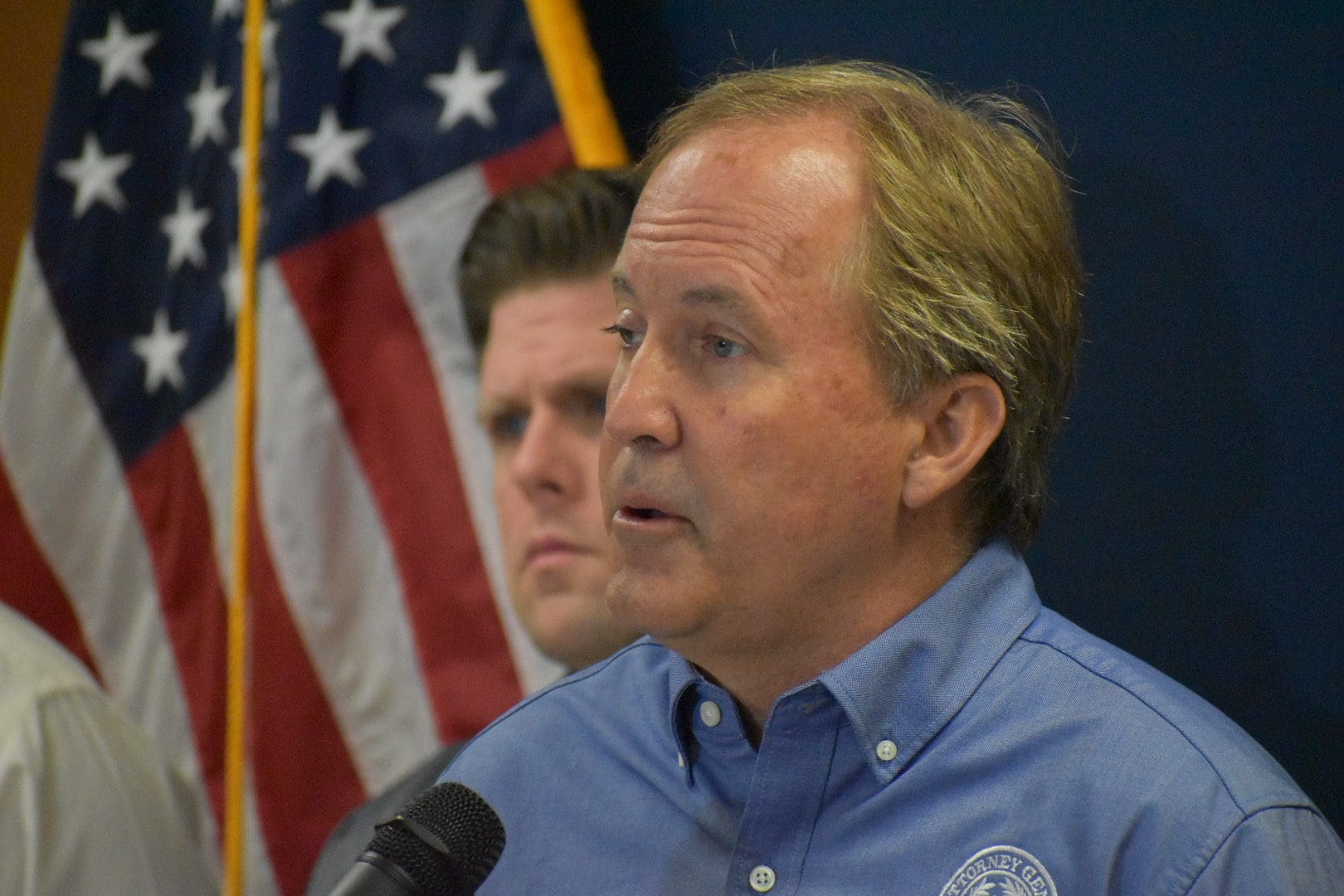On the morning of April 8, students at Southern Methodist University found a thought-provoking display on the Dallas Hall lawn upon their arrival to campus. Approximately 2,500 crosses were staked into the ground in a U-shaped pattern, with a red rose attached to each one. Surrounding the display were signs which read, “1 cross = 1 child, 1 rose = one woman.”
The display had been put together by students in Mustangs for Life, SMU’s pro-life student organization. The crosses were intended to bring awareness to the number of Americans harmed by abortions every day—both inside the womb and out. More importantly, the students intended to facilitate empathetic conversation over the emotionally charged issue of abortion.
Within a few hours, opposition to the crosses began to roll in. Across from the display, someone put up a poster upon which was written in thick marker, “Women have a right to their bodies!” and “Keep abortion safe and legal!”
Since student organizations at SMU must obtain permission to use the Dallas Hall lawn for their displays, Mustangs for Life could have justifiably removed this sign. The pro-life students chose to leave it up, wanting all voices to be heard. The difference in the amount of effort put into the two opposing displays spoke for itself and did the opposition little in the way of winning any argument before the general public.
Students and faculty could be seen taking pictures with the pro-life display throughout the day. Many people on campus stopped to read the signs thoughtfully before gathering together in conversation.
Mustangs for Life had obviously succeeded in its goal of increasing awareness about the number of children aborted each day, but they were also successful in getting the campus to talk about the pro-life message.
To a casual observer, students and faculty gathering around the cross display might have looked like any other well-organized student awareness project. To those who opposed the display, however, the gatherings seem to have represented a threat.
On the last morning of the cross display, students discovered that someone had left a pile of hangers on the ground in front of the crosses over night.
The hangers most likely represented the frequent pro-abortion argument that if aborting “fetuses” was made illegal, women would be going to “back alley,” black-market abortion clinics with primitive surgical tools and poor standards of cleanliness. Mustangs for Life considered the hangers both vulgar and offensive, so the pro-life students promptly removed them from the cross display.
This cross display comes just one school year after the controversy over free speech at SMU, where student groups unanimously opposed their administration’s decision to no longer allow Young Americans for Freedom to put out its annual 9/11 memorial on the Dallas Hall lawn. Students in Mustangs for Life often speculate whether it was actually their own controversial display that was the target of the administration’s attempted restriction of political exhibitions.
In any case, Mustangs for Life considers this year’s display a success, and the group plans to continue using it annually. Mustangs for Life also focuses on end-of-life protections and inviting pro-life speakers such as Feleceia Benton, whose decision to not abort her unplanned, special-needs baby inspires women to recognize that there are options other than abortion and that having a child is one of the greatest joys of life.
No matter what obstacles and challenges they may face, SMU Mustangs for Life sets the example of how young people are spreading the pro-life message: From conception until natural death, embrace the fullness of life.
They are the pro-life generation.
This is a commentary submitted and published with the author’s permission. If you wish to submit a commentary to Texas Scorecard, please submit your article to submission@texasscorecard.com.




